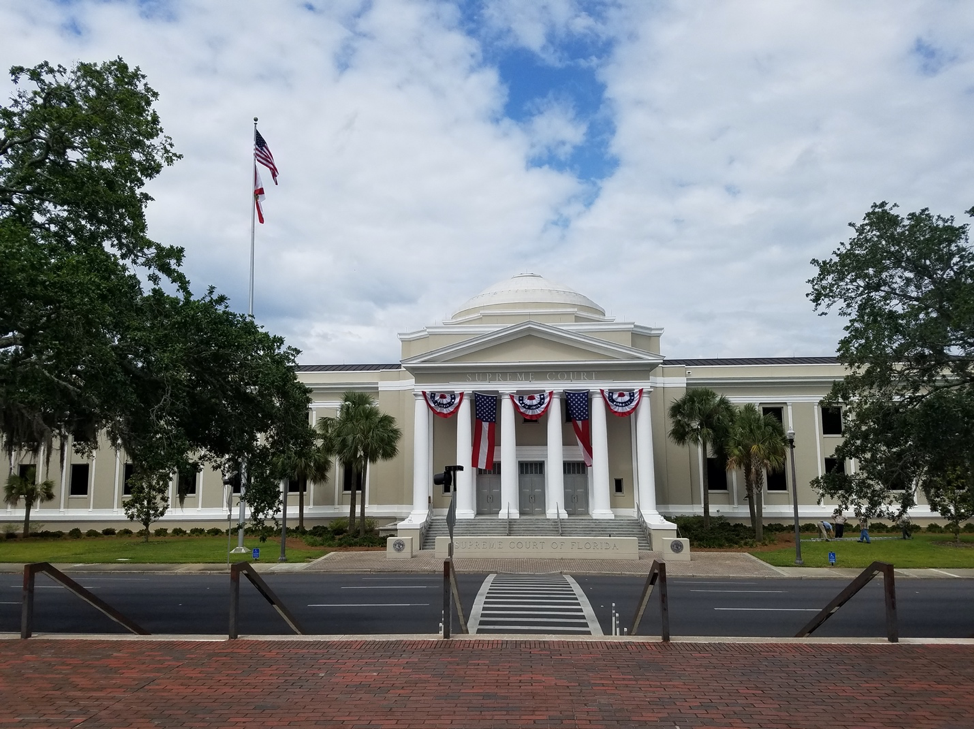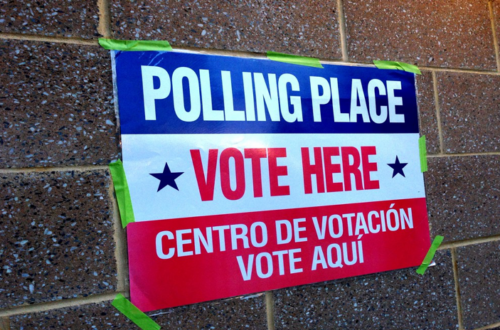On Aug. 27, the Florida Supreme Court denied a petition by State Rep. Geraldine Thompson, D-Orlando, in a case concerning the appointment of Justice Designate Renatha Francis. The court ruled that Gov. Ron DeSantis had exceeded his authority in appointing Francis.
Judges Renatha Francis and John Couriel were appointed by DeSantis on May 26 to replace two Florida Supreme Court justices DeSantis had previously appointed who were elevated to the 11th U.S. Circuit Court of Appeals.
Thompson filed a lawsuit against DeSantis and Judicial Nominating Committee Chair Daniel Nordby on July 13th alleging that Francis was unqualified for the position. According to the lawsuit, Francis had not been a member of the Florida Bar Association for 10 years when she was one of nine applicants nominated by the JNC nor when she was appointed as justice designate.
Thompson’s case also brought attention to DeSantis’ delay in appointing Francis, which he claims was due to the coronavirus pandemic.
The Florida Constitution gives the governor 60 days to appoint a judge after being presented with the JNC’s list of nominees. DeSantis missed the 60-day deadline and a self-imposed deadline of May 1st. Couriel and Francis were not appointed until May 26.
Couriel has already taken his position on the bench and recused himself from this case.
DeSantis indicated that Francis’s maternity leave is the reason she will not join the court until Sept. 24; however, that is also the first date she will meet the requirement of having been a Florida Bar Association member for 10 years.
In his announcement, DeSantis expressed pride in the diversity of his judicial picks.
“I’ve had the privilege to make five appointments to the Florida Supreme Court. Four of those five appointments have come from South Florida,” said DeSantis. “Two of the appointments have been women, three of the appointments have been Hispanic.”
Francis was selected out of 32 other applicants for the position and out of nine JNC nominees. Francis would be the only female justice on the Florida Supreme Court as well as the only Black justice and the first Jamaican American justice.
However, Thompson’s lawsuit highlighted the fact that the other Black applicants for the position, including Daryl Trawick and Elijah Smiley, were extremely well-qualified with decades of judicial experience.
“I support diversity, and I think you can find diversity and qualifications at the same time,” Thompson told the Florida Political Review.
When asked about the 10-year requirement in her JNC interview, Francis said, “The way that I read the Constitution and the text of the 10-year clause, it does not prohibit me from having eligibility to apply and be nominated.”
DeSantis has similarly said, “The text of the 10-year clause as I’ve read it sets out the requirements for eligibility to serve, which would happen at the time you take the commission and then receive the commission and then take the office.”
DeSantis and Nordby filed reply briefs on Aug. 3, and Thompson filed a final brief on Aug. 13.
On Thursday, in a unanimous ruling written by Justice Carlos Muñiz, the Florida Supreme Court ruled that Francis was not qualified when appointed and that DeSantis had overstepped his authority.
However, the court denied Thompson’s petition.
In its ruling, the court explained that Thompson had not filed a lawsuit when the JNC presented its list of nominees to DeSantis in January, and so the nominee list stands. The only solution, the court ruled, is to order DeSantis to choose another justice from the original list.
As this was not the solution purposed by Thompson’s petition, the court denied her petition.
“What they’re saying is, ‘He exceeded his authority, but so what?’” Thompson said. “It gives free rein for this governor and any other governor to exceed their authority, and there’s no repercussion for doing so.”
Thompson will have until Aug. 31 to respond to the ruling.
“There is a light at the end of the tunnel,” Thompson told the Miami Herald. “They have made it very clear you have to be eligible on the day you are appointed, not some future date.”
Featured image: The Florida Supreme Court building in Tallahassee, Florida. Unmodified photo by Bruin79 used under a Creative Commons license. https://bit.ly/3jjUGEM





